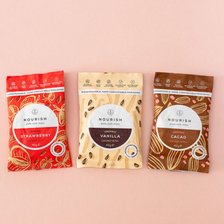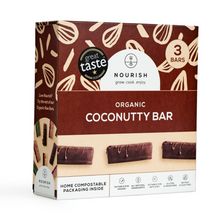5 Ways to maintain healthy blood sugar levels
As we discussed on the last Journal article, Why Blood Sugar Matters, maintaining stable blood sugar levels is a really important part of your overall health and wellbeing. Today we take a look at just 5 hints that can really help to stabilise your levels and make sure that you're not riding that blood sugar rollercoaster all day long.
1. Prioritize Protein and Healthy Fats at Every Meal
Instead of starting with carbohydrates, start with quality protein and healthy fats - these macronutrients slow down the absorption of glucose into your bloodstream and help prevent post-meal crashes. When meals are heavy in carbs and light in protein, blood sugar rises quickly and falls just as fast, leading to feelings of fatigue, irritability, and cravings. Protein, on the other hand, provides a steady source of fuel and signals fullness to the brain, while fats support hormone production and help stabilize energy. (1, 2)
Practical Tip: Try including 20–30 grams of protein at each meal from sources like wild-caught salmon, pasture-raised eggs, or legumes, and pair them with fats such as avocado, extra virgin olive oil, or a sprinkle of seeds/nuts.
2. Optimize Your Fibre Intake
Soluble fibre helps reduce the absorption rate of sugars into the bloodstream, which supports a healthy post-meal glucose response (reducing spikes). It also fuels a healthy gut microbiome – which is an important part in regulating metabolism. Great sources of fibre include - ground flaxseeds/linseed, chia seeds, legumes, and cruciferous vegetables. See our blogs HERE for more information about fibre. (3)
Practical Tip: Work up to 30–35g of fibre per day — increase gradually to avoid digestive upset.
3. Practice Meal Timing and Intermittent Fasting (IF)
Meal timing can influence insulin sensitivity. Functional medicine practitioners often recommend eating within a 10–12 hour window and avoiding late-night eating. Intermittent fasting has been shown to improve fasting glucose and insulin levels. (4)
Practical Tip: Eat breakfast a little later in the morning such as 10am and try eating dinner by 6:30–7:00 PM OR have an early dinner and finish eating 10hrs after your first meal of the day for example breakfast at 7am and finished eating by 3pm
4. Manage Stress and Cortisol Levels
Cortisol, the primary stress hormone, raises blood sugar. Chronic stress, whether physical or emotional, can lead to persistent hyperglycaemia, even in those with a healthy diet. (5)
Practical Tip: Incorporate daily stress reduction practices like diaphragmatic breathing, mindfulness, or adaptogenic herbs like ashwagandha.
5. Move After Meals
Light movement after eating can significantly decrease blood sugar spikes. Even a 10-15 minute walk can increase the glucose uptake into muscle cells dropping the spike that may occur after a meal. (6)
Practical Tip: Take a short walk or do a few squats, or yoga stretches within 30-60 minutes after eating.
References
-
Holt S et al., “A satiety index of common foods,” European Journal of Clinical Nutrition, 1995. (https://pubmed.ncbi.nlm.nih.gov/7498104/)
-
Gillingham LG, Harris-Janz S, Jones PJ. Dietary monounsaturated fatty acids are protective against metabolic syndrome. Lipids. 2011;46(3):209–228. (https://pubmed.ncbi.nlm.nih.gov/21308420/)
-
Mao T et al., “Effects of dietary fiber on glycemic control and insulin sensitivity in patients with type 2 diabetes: A systematic review and meta-analysis. Journal of Functional Foods. 2021. (https://www.sciencedirect.com/science/article/pii/S1756464621001493)
-
Sutton EF et al., “Early Time-Restricted Feeding Improves Insulin Sensitivity,” Cell Metabolism, 2018. (https://pubmed.ncbi.nlm.nih.gov/29754952/)
-
Hackett RA, Steptoe A. “Type 2 diabetes mellitus and psychological stress—a modifiable risk factor,” Nature Reviews Endocrinology, 2017. (https://pubmed.ncbi.nlm.nih.gov/28664919/)
-
Syeda US et al., “The importance of exercise for glycaemic control in type 2 diabetes,” American Journal of Medicine Open. 2023. (https://www.sciencedirect.com/science/article/pii/S2667036423000018#:~:text=Resistance%20exercise%20benefits%20insulin%20sensitivity%20in%20those%20with%20type%202%20diabetes.&text=Movement%20throughout%20the%20day%20by,benefits%20blood%20glucose%20and%20insulin.&text=Physical%20activity%20after%20meals%20reduces%20blood%20glucose.&text=Performing%20exercise%20later%20in%20the,glycemic%20control%20and%20insulin%20sensitivity.)
Featured Products In This Article:

10 pack of mixed Organic Coconut Bites

Coconutty Bars x 3 pack





